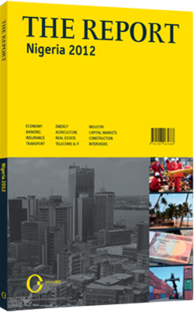OBG talks to Stephen Green, UK Minister of State for Trade & Investment

Interview: Stephen Green
What can be done to increase the UK’s private sector involvement in the Nigerian economy?
STEPHEN GREEN: A lot needs to be done and I think there is plenty of potential for it. In fact, we have set ourselves the objective of doubling both trade and investment by 2020. There is good reason to believe that this can be achieved. The numbers show there is an enormous opportunity. Nigeria is a big country underlined by a comparatively high growth rate; it has the potential to develop a middle class with real purchasing power over the next number of years. British exports to Nigeria did well in 2011, growing at over 13%, which is higher than what we achieved globally. Moreover, our export base is broad. Some of it may be linked to petrochemicals, but a lot of it is not, like cars. If Nigeria succeeds at raising disposable income levels, this demand may very well extend into the UK’s financial sector as well as creative industries like music and fashion.
What export opportunities can be identified for British educational institutions?
GREEN: I believe that for any country that looks at its population base and decides it wants to improve tertiary- and secondary-level education on an English language basis, the UK is one of the most competitive and attractive markets in the world. Examples in the Middle East and Asia attest to this, and there is no reason why this would be any different in Nigeria. From the perspective of British policy, it is extremely important that this is supported. Exporting education is both a short-term generator of export currency and a long-term builder of strategic relationships.
What has been the impact of recent unrest in northern Nigeria on British investor interest?
GREEN: I do not think it has had a visible impact on interest. It is true that doing business in Nigeria comes with risks and challenges, but it is far from being the only country where, despite security risks, British enterprise flourishes. Clearly, it is important that the government addresses the terrorism issue, not just for business but also for the well-being of Nigerian residents in particular. However, in my view, there is no reason to dismiss it as a place for business.
Nigeria is an emerging market that has huge developing needs of its own, so the prospect of capital exports towards the UK will not be top priority. But I do see a significant opportunity related to the Nigerian diaspora. The high number of Nigerian nationals and Nigerian-owned businesses in the UK provide both a vehicle for inflow of investment as well as a vehicle for higher involvement of the British private, particularly small and medium-sized, enterprises.
What do you see as the biggest challenges to expanding British investment in West Africa?
GREEN: Much-cited concerns are regulatory complexity, corruption and infrastructure. Whereas each of these deserves attention from the point of view of the investor, none of them are unique to Nigeria. I feel there is sometimes a perception that dealing with Nigerian business opportunities is somehow different than elsewhere, but I do not think this is based on reason.
How do you describe the policy of fostering economic development via entrepreneurial activity?
GREEN: My visit to and dealings with my counterpart in Nigeria show that the Jonathan administration has embraced the principle that sustainable economic growth is about unleashing the private sector, mobilising capital and encouraging trading – this is how jobs are created. Nigeria is rationally looking at the challenges of economic development and realises that enterprises can play an active part. Despite the large number of development challenges ahead, Nigeria has momentum for growth, and there is good reason to have confidence in its business environment going forward.
You have reached the limit of premium articles you can view for free.
Choose from the options below to purchase print or digital editions of our Reports. You can also purchase a website subscription giving you unlimited access to all of our Reports online for 12 months.
If you have already purchased this Report or have a website subscription, please login to continue.

